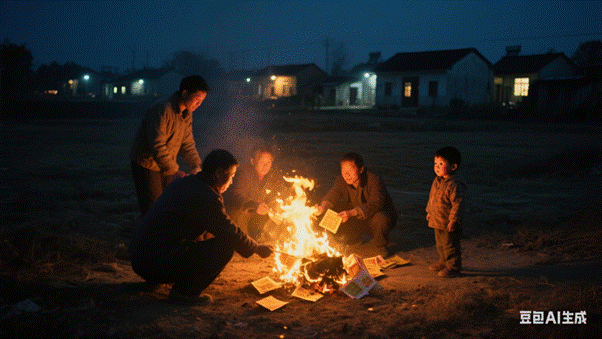
As the summer heat softens into gentle autumn breezes, a unique and meaningful festival takes root in Chinese culture—the Zhongyuan Festival. Also known as the “Ghost Festival” in some Western contexts (though this term barely captures its cultural depth), it falls on the 15th day of the seventh lunar month each year (usually in August or September on the Gregorian calendar). Far from being a somber occasion focused on fear, it is a time for remembrance, gratitude, and reconnecting with ancestors. Let’s dive into its origins, regional customs, and the timeless significance it holds for Chinese people.
What Is the Zhongyuan Festival?
At its core, the Zhongyuan Festival is a traditional Chinese holiday centered on honoring deceased ancestors and comforting wandering spirits. It is one of the three major “Yuan” festivals in China, alongside Shangyuan Festival (Lantern Festival, honoring heaven) and Xiayuan Festival (honoring earth). Unlike festivals that celebrate harvests or new beginnings, Zhongyuan carries a quiet, reflective tone—rooted in the belief that during the seventh lunar month, the “gate to the underworld” opens, allowing ancestors’ spirits to return to the mortal world for a brief visit.
Where Does It Come From?
The festival’s origins trace back over 2,000 years, blending three key cultural and religious influences:
1. Ancestor Worship in Ancient China: Early Chinese societies viewed ancestors as guardians of the family. The seventh lunar month, a time when crops neared maturity, was seen as an ideal moment to offer thanks to ancestors for their blessings—by sharing the first fruits of the harvest with their spirits.
2. Taoist Traditions: Taoism named the 15th day of the seventh lunar month “Zhongyuan Day.” According to Taoist beliefs, this day is when the Taoist deity “Zhongyuan Pudu Emperor” descends to judge and forgive wandering spirits. Temples hold rituals to “deliver” these spirits from suffering, often burning paper offerings and reciting prayers.
3. Buddhist Influences: Buddhism introduced the story of “Mulian Rescuing His Mother,” a tale about a monk who traversed the underworld to save his mother from suffering. This story reinforced the idea of filial piety (a core Chinese value) and inspired practices like offering food to spirits—making the festival more about compassion than fear.
How Do People Celebrate Across China?
While the core spirit of remembrance unites all celebrations, regional customs add rich diversity to the festival:
• Northern China (e.g., Beijing, Shandong): Families focus on quiet home rituals. They clean their ancestors’ graves, place fresh flowers or fruits on the tombstones, and burn “paper money” (symbolic of wealth in the afterlife) while whispering prayers. Some also set a bowl of porridge or steamed buns on the family altar—simple offerings to welcome ancestors home.
• Southern China (e.g., Guangdong, Fujian): Celebrations are more lively and community-focused. In Guangdong, families gather for a “ghost feast”—a meal with extra dishes set for ancestors. In coastal Fujian, towns hold “water lantern” ceremonies: people release paper lanterns inscribed with wishes onto rivers, guiding lost spirits to peace.
• Southwest China (e.g., Sichuan, Yunnan): Local minorities add their own flair. The Yi people hold bonfires to “illuminate the way” for ancestors, while the Bai people prepare special rice cakes shaped like animals as offerings. Some villages also stage traditional operas—believed to entertain both the living and the spirits.
• Taiwan and Hong Kong: Influenced by both mainland traditions and local culture, people here burn “paper items” (like paper houses, cars, or clothes) to ensure ancestors have a comfortable afterlife. Hong Kong’s temples host large-scale prayer sessions, and Taiwan’s night markets even sell small paper offerings—making the festival feel both sacred and approachable.
What Makes This Festival Meaningful Today?
In a fast-paced modern world, the Zhongyuan Festival remains relevant for three key reasons:
First, it preserves filial piety, a cornerstone of Chinese culture. By taking time to remember ancestors, younger generations learn to respect their roots and the sacrifices of those who came before.
Second, it fosters compassion. The festival’s focus on comforting wandering spirits reminds people to care for the vulnerable—not just the living, but also the memory of those who have passed.
Finally, it strengthens community bonds. Whether through family meals, village rituals, or temple gatherings, the festival brings people together to honor a shared heritage—bridging gaps between generations and neighbors.
The Zhongyuan Festival is more than a “ghost festival”; it is a celebration of memory, gratitude, and love. It teaches us that even as we move forward, we never leave our past behind. This year, as the seventh lunar month arrives, take a moment to think about your own roots—you might just find a new appreciation for the traditions that shape us.